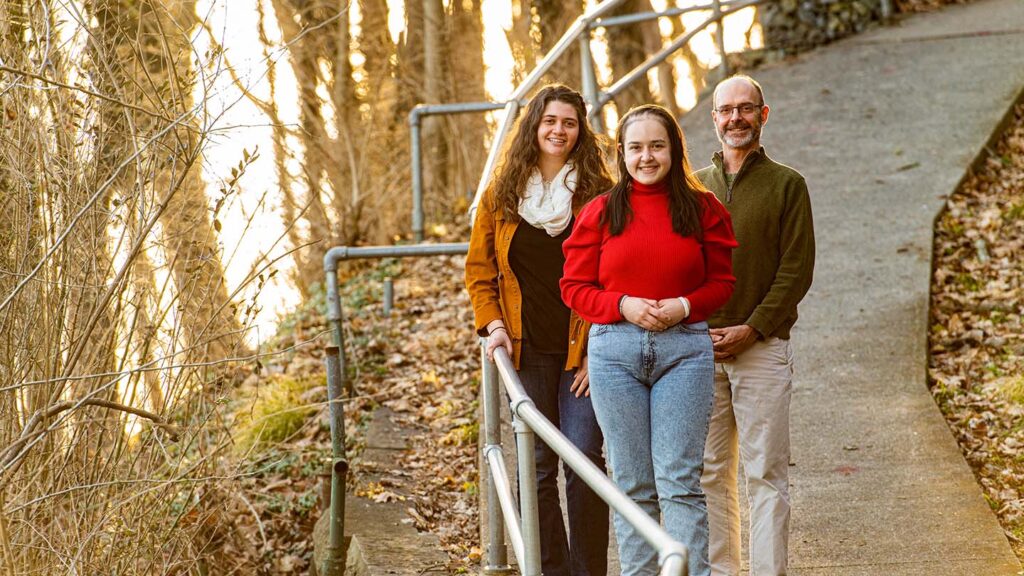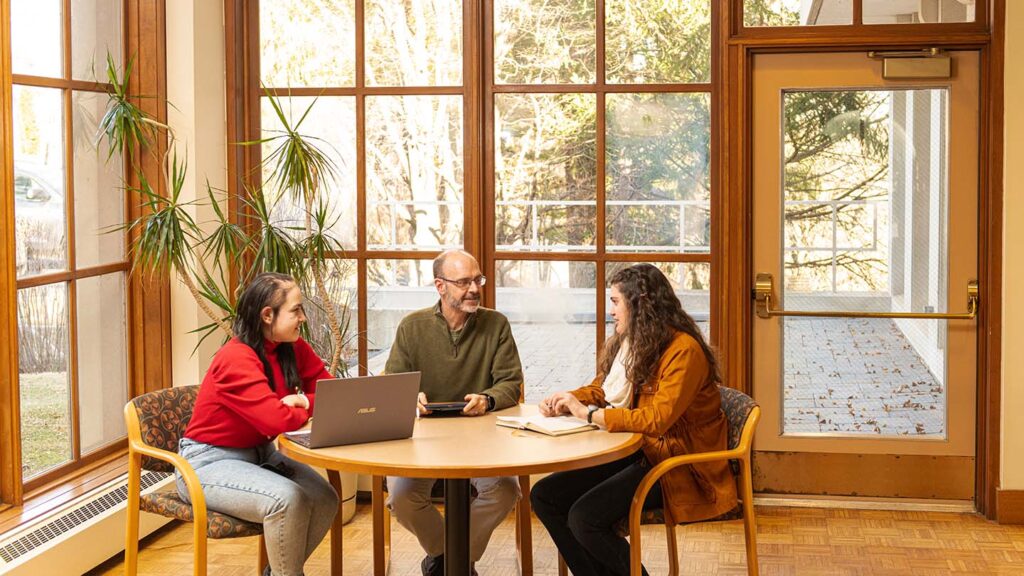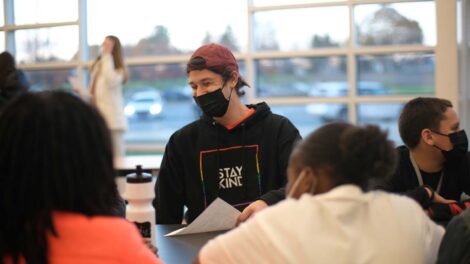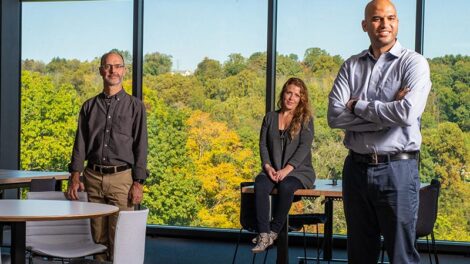Creating solutions for community challenges
By Stephen Wilson
Diving into a community project with entrepreneurial vigor is just what the Proctor Fellowship is designed for.
James N. ’96 and Kara H. Proctor Fellows Program allows students to develop an understanding of the role higher education plays in the advancement of the public good through community engagement and social entrepreneurship.
That vision is playing out through the inaugural team.
Christopher Ruebeck, associate professor of economics, and two students, Abigail Schaus ’24 and Angela Busheska ’25, will partner with the Nurture Nature Center as it activates Easton’s Climate Action Plan (CAP).
 The students plan to develop a portal that shares information with the public as well as data on key CAP initiatives.
The students plan to develop a portal that shares information with the public as well as data on key CAP initiatives.
“The Proctor Fellowship has given us a chance to bring an important and challenging project within reach,” says Rachel Hogan Carr, executive director, Nurture Nature Center. “The skills, energy, and ideas the students bring will help us to create a portal for the city of Easton and allow residents and the city to work together to monitor and implement climate adaptation and mitigation strategies locally.”
The project will focus on two areas: food and energy. It will track efforts in progress through organizations like Buy Fresh Buy Local of the Greater Lehigh Valley and through city-supported initiatives like the installation of solar panels.
The project’s web presence will share information both qualitative in nature, like how-to projects that individuals or families can complete, and quantitative data, such as carbon footprint information. The portal also will provide links to data and support resources.
Getting to this starting point has been Ruebeck’s focus over the fall semester. Bringing a robust background to this role, he has served as the inaugural faculty director of the Dyer Center for Innovation and Entrepreneurship and faculty adviser on a recent Technology Clinic project that aided Northampton Borough with an economic development plan. Ruebeck also has a long history working with Landis Center for Community Engagement through various grants and projects, such as those with Holiday Helpers, Buy Fresh Buy Local, the Hunger Coalition, and Cheston Elementary.
“I sought a community-oriented project that would involve a number of campus and community entities,” says Ruebeck. “My work bringing Rachel in to teach the social entrepreneurship course and the work that she and her Nurture Nature team have done to create Easton’s Climate Action Plan make this project ideal.”
 Ruebeck hopes it will draw out student and faculty interest, and has already garnered support from the Lafayette Consulting Group and the environmental science and studies program.
Ruebeck hopes it will draw out student and faculty interest, and has already garnered support from the Lafayette Consulting Group and the environmental science and studies program.
“I hope that faculty in various divisions will see different ways to bring their students’ quantitative and qualitative skill sets to this work,” says Ruebeck.
The project will be supported for two years by the program endowment. “By then, we hope momentum will grow beyond this support as the city and Nurture Nature bring their interests and networks to leverage partners and support,” says Ruebeck.
Proctor, who also sits on the board of the Dyer Center, saw the fellowship as an opportunity to combine his passions in community engagement and social entrepreneurship.
“The intersection of entrepreneurship and community has been a passion of mine for some time,” says Proctor. “I am thrilled to watch these amazing students apply what they are learning at Lafayette to real-world challenges. They are creating something that has impact. That’s one of the best feelings in the world for an entrepreneur. To be a small part of their journey is fantastic.”
The fellowship was created through the work of Art Kney, professor of civil engineering and past director of Landis Center for Community Engagement, and Chelsea Morrese, current director of Landis Center for Community Engagement.
“Jamie sought thoughtful ways to support students and faculty in these two integrated spaces,” says Kney.
“We are excited to see this project launch, and future projects will both support our community and create solutions to community challenges,” says Morrese.

